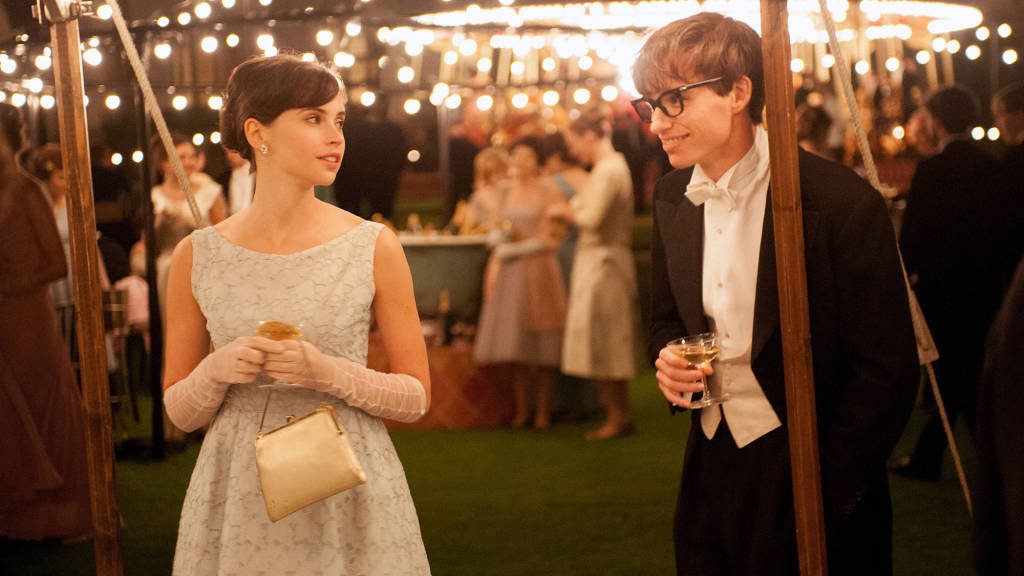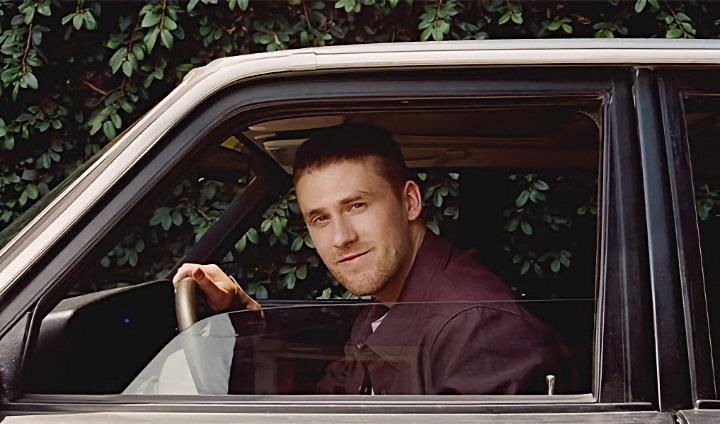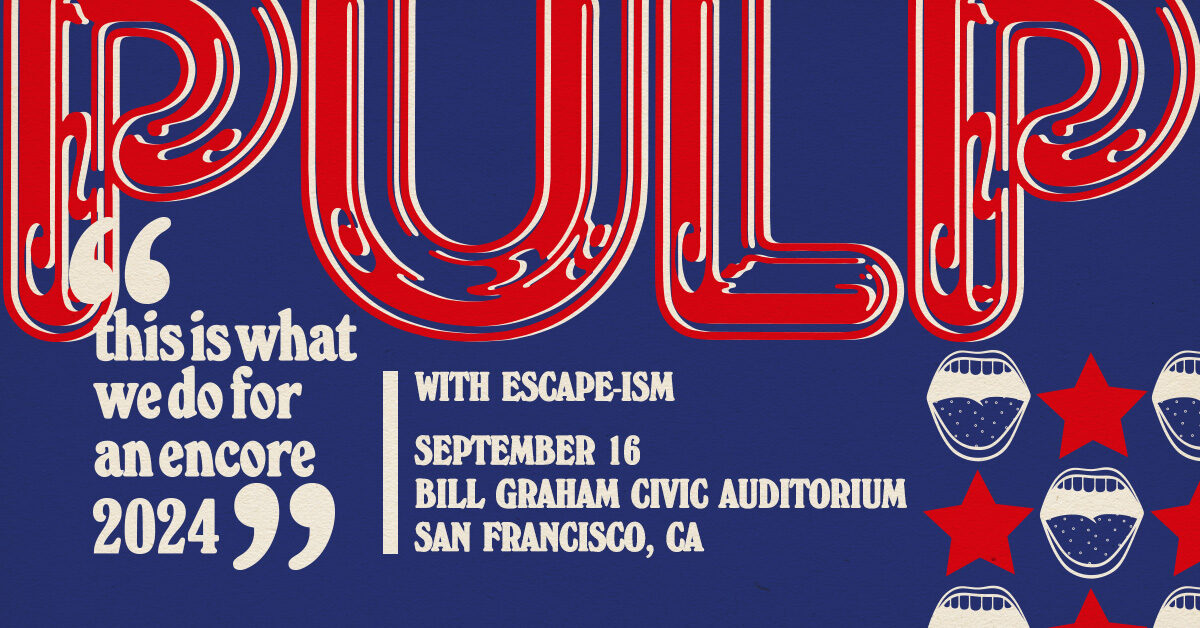Review: ‘The Theory of Everything’ Isn’t Quite Foolproof

The usual issue with biopics told over a significant amount of time is that they still need to the beats of conflict and (perhaps) resolution, but it’s difficult to to really get that tension when spread out so long. That’s especially true when so many of them go through similar arcs to get there. That’s certainly true for The Theory of Everything — it doesn’t really do anything new in the format — but it has a certain element of delight permeating throughout.
It helps that director James Marsh (Man on Wire) creates an engaging visual style that seems to recreate the feel of Cambridge, and England, in the 1960s and feels so inviting. It’s obvious that he doesn’t just want to point a camera at the story of Stephen Hawkings (Eddie Redmayne) and his first wife Jane Wilde (Felicity Jones). He wants to the viewer to feel it. The epic score by Jóhann Jóhannsson doesn’t hurt that objective, nor does superb acting by Redmayne and Jones.
Based on Jane Wilde Hawking’s memoir Traveling to Infinity: My Life with Stephen, it begins focusing on Hawking but it slowly begins focusing on Wilde as the story goes on. Much of it obviously revolves around Hawking’s diagnosis with a motoneuron disease which was slowly disabling the use of his muscles while he was simultaneously rising success in the science world. While Hawking is certainly its major character — Redmayne’s portrayal is simply fantastic — it doesn’t just dwell on how his disease affected him, but how it affected Jane, who decided to marry him despite the diagnosis. On top of that he happens to become one of the most well known theoretical physicists in the world.
There’s nothing especially exciting about the film — and it’s all very British from top to bottom — but the talent of the leads is enough to hold interest through the dull, forced dramatic moments. It’s hard to really do much different than skim the surface when traveling so quickly through time, but solid acting is enough to get an understanding and attachment to the characters.
It’s cast makes it engaging at times, but they can’t overcome it still being somewhat forgettable and bland. Many will certainly find it delightful yet heart wrenching, but it’s usually pulling at strings instead of truly earning most of its emotions. The scenes between Jones and Redmayne are usually its strongest, but there’s too many corny scenes, like when Jane escapes to a small bridge in the forest to cry away her frustration. If Marsh and writer Anthony McCarten were as concerned with doing something as exciting on the page as Marsh was with the visuals, it could have been something special.
Rating: 3 out of 5







